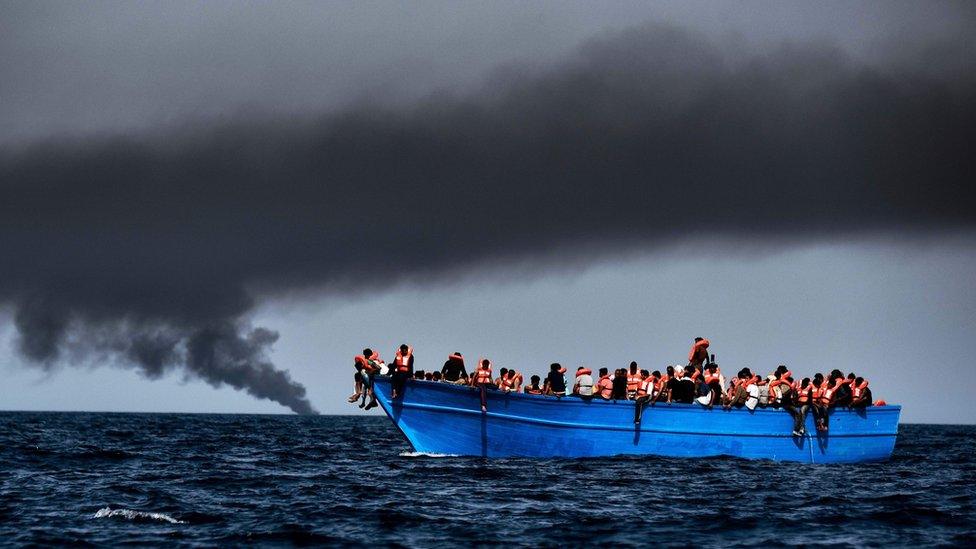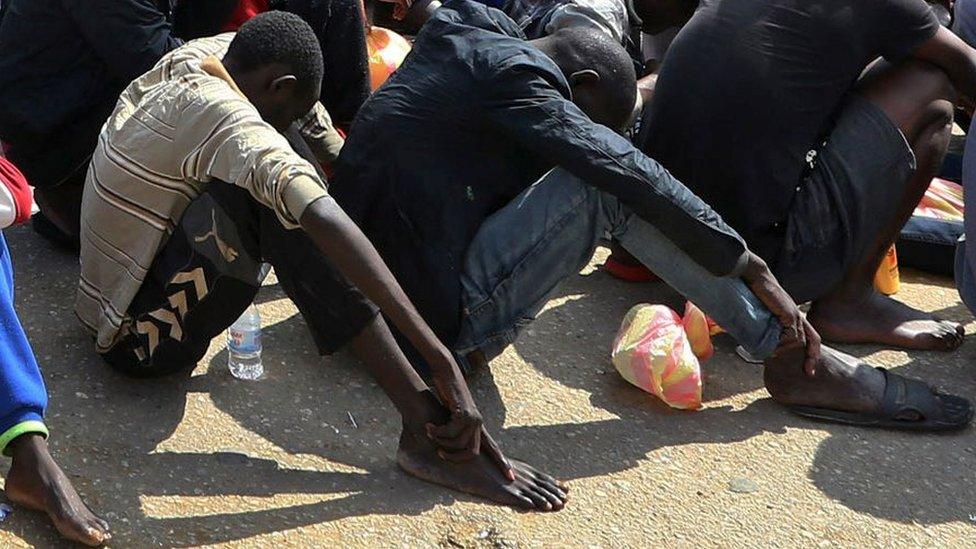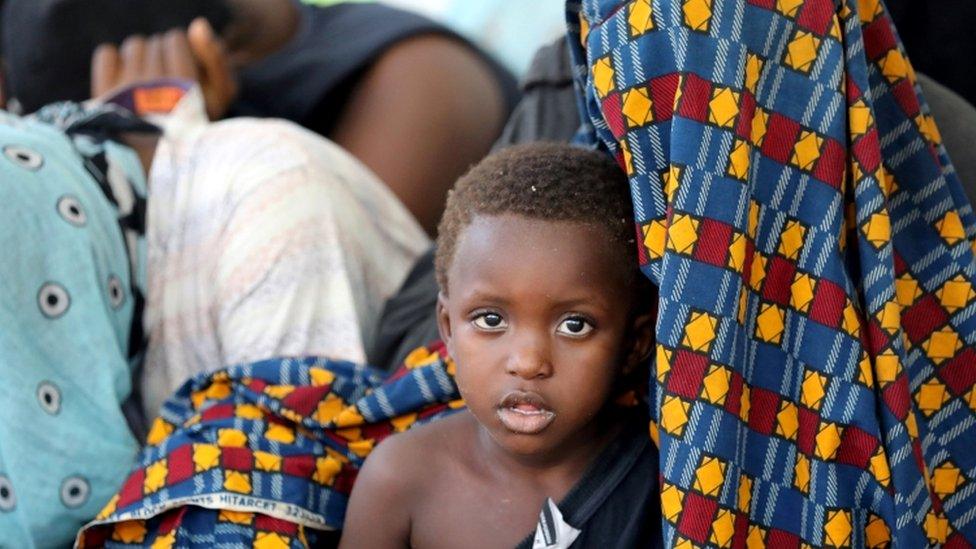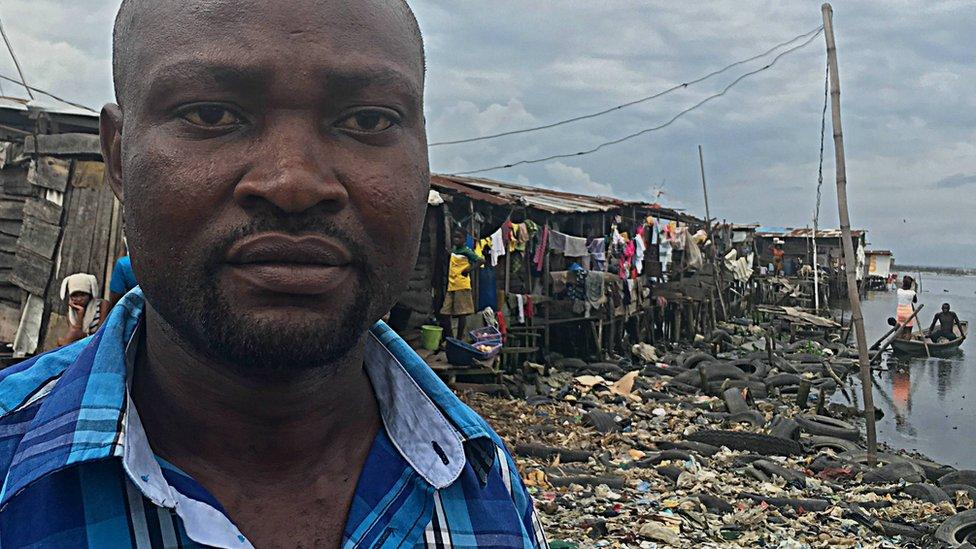UN sanctions for people traffickers in Libya in global first
- Published

Hundreds of thousands of sub-Saharan African migrants have attempted to reach Europe through Libya
The UN Security Council has imposed sanctions on six leaders of human trafficking networks operating in Libya - the first time traffickers have been put on an international sanctions list.
The blacklisted six are four Libyans, including the head of a regional coast guard unit, and two Eritrean nationals.
Smugglers have taken advantage of insecurity in Libya to move hundreds of thousands of migrants by sea to Europe.
Many migrants are trapped in detention centres and beaten by traffickers.
The sanctions - a global travel ban and an assets freeze - were the result of an internationally-backed Dutch proposal. The proposal was initially presented on 1 May but held up by Russia, which sought to examine the evidence against the six men.
The unprecedented sanctions follow widespread outrage at the end of 2017 after CNN aired footage showing the auctioning of migrant men as slaves in Libya.
"Last fall, images of migrants being sold as slaves in Libya shocked our conscience, and the Security Council vowed to take action," said the US envoy to the UN, Nikki Haley.
"Today's sanctions send a strong message that the international community is united in seeking accountability for perpetrators of human trafficking and smuggling. There is no place in our world for such abuses of human rights and human dignity," she said.
How I smuggle people from Nigeria to Europe
Among the six men sanctioned is Ermias Ghermay, who the UN called "one of the most important sub-Saharan actors involved in the illicit trafficking of migrants in Libya".
The other five are:
Fitiwi Abdelrazak of Eritrea
Libyan militia leader Ahmad Oumar al-Dabbashi
Libyan Musab Abu-Qarin
Libyan Mohammed Kachlaf, head of the Shuhada al Nasr brigade in Zawiya, western Libya
regional Libyan coast guard leader Abd al Rahman al-Milad.
Libya has emerged as a major route for African migrants seeking passage to Europe. The country descended into lawlessness in the wake of the overthrow of long-time leader Muammar Gaddafi, with rival governments claiming power, backed by rival militias.
The African Union said in December there were an estimated 400,000 to 700,000 migrants in more than 40 detention camps across Libya, many in inhumane conditions.
The International Organization of Migration recorded more than 3,100 deaths among migrants attempting to cross the Mediterranean from Libya last year.
- Published23 November 2017

- Published18 November 2017

- Published14 November 2017

- Published21 June 2017
